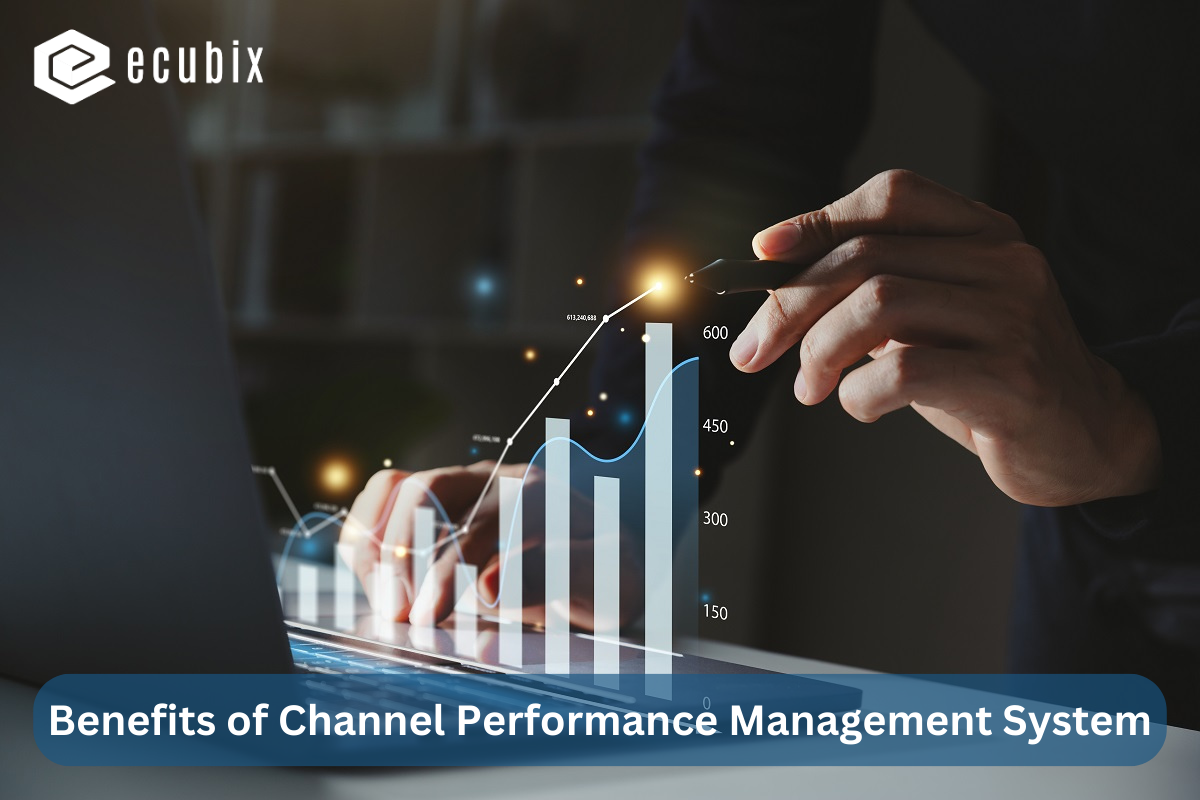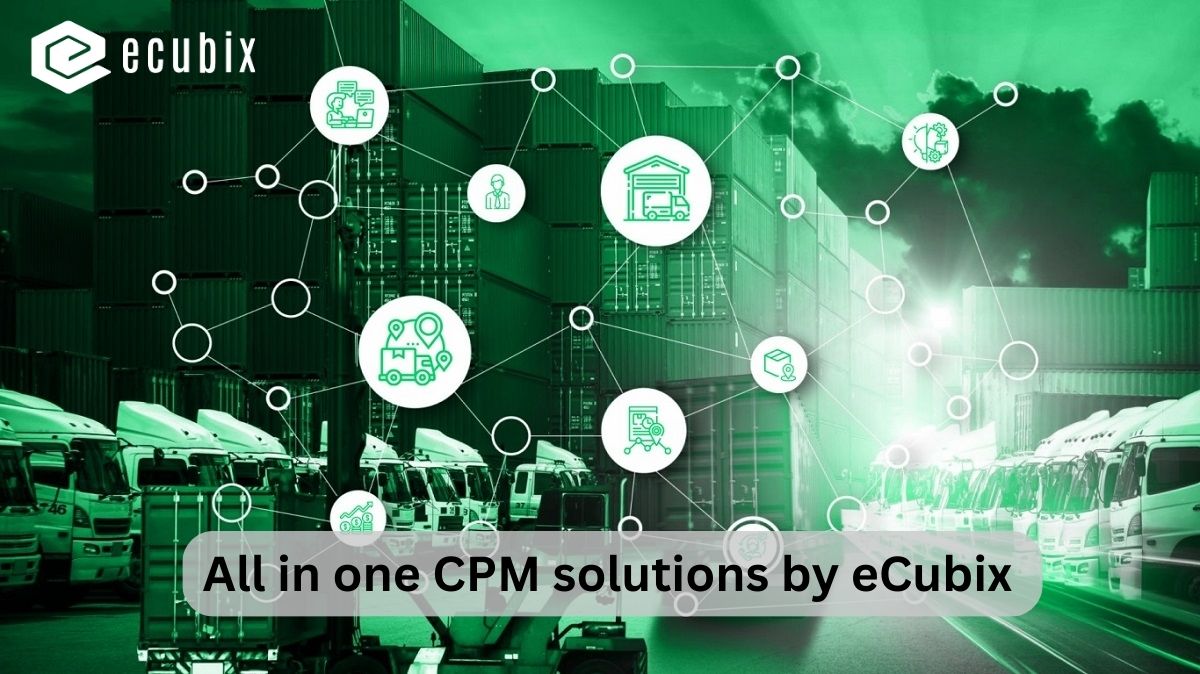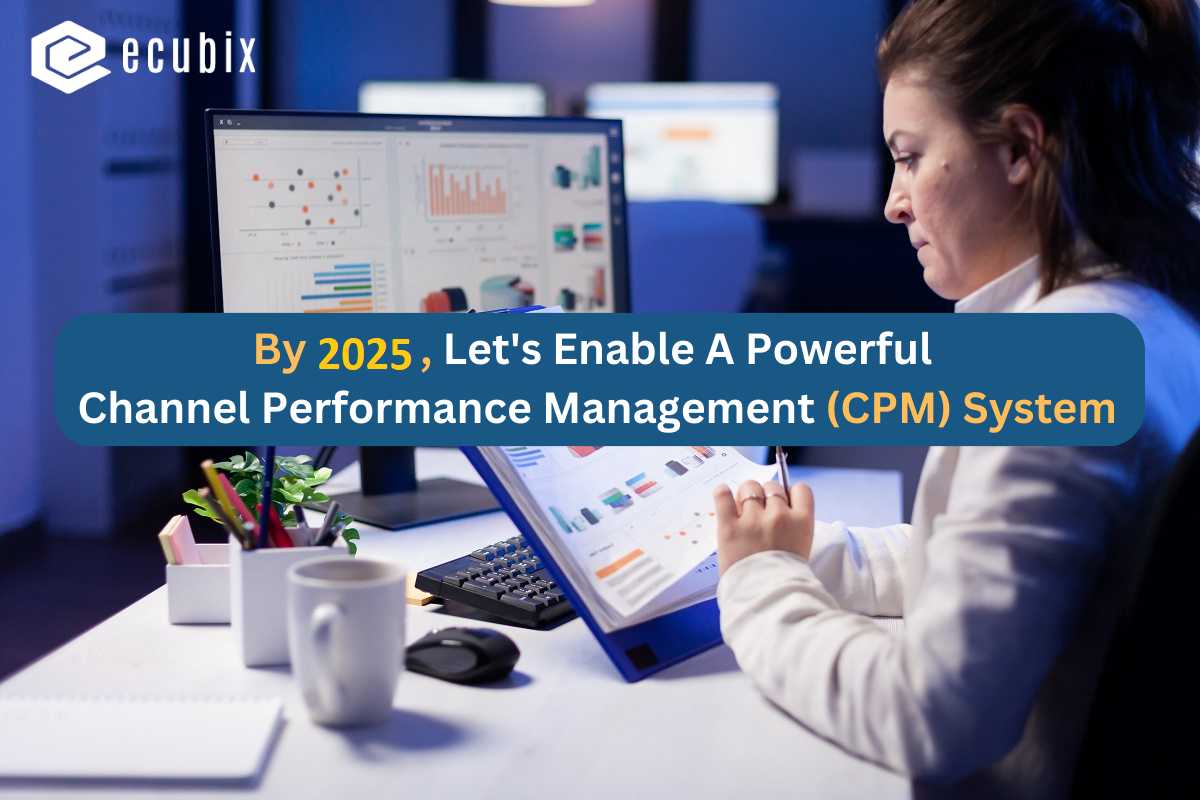A well-implemented channel performance management system can be a game-changer for businesses relying on channel sales. By providing actionable insights, streamlining operations, and fostering strong channel partnerships, it can contribute significantly to increased sales, revenue growth, and a more sustainable and profitable business model.
Remember, the success of a CPM depends on several factors, including the specific needs of your business, the chosen platform, and the quality of data and implementation. Carefully evaluate your requirements, choose the right solution, and dedicate resources to data quality and user adoption for optimal results.
Benefits of Channel Performance Management System:
In today’s competitive business landscape, effective channel performance management has become crucial for companies across various industries. From printing, tracking & tracing to liquidation, businesses are constantly seeking ways to optimize their distribution channels.

-
Visibility of Stock Availability:
Accurate stock visibility across channels enables better demand forecasting and inventory allocation. This prevents stockouts in high-demand channels and prevents excess inventory in slower channels, optimizing inventory management and reducing associated costs. Real-time visibility into stock levels across channels enables better coordination with suppliers. You can optimize production schedules, transportation routes, and warehouse operations, leading to a more efficient and cost-effective supply chain.
-
Insight on Near Expiry Stock:
Near expiry stock can be a headache for businesses, but a CPM system can be a valuable tool in turning it into an opportunity. You can set up alerts to notify you when specific products are close to expiring, allowing for proactive measures. You can offer deeper discounts in channels with lower sales velocity for those products. Use historical data to forecast sales for near-expiry products and plan accordingly. Generate reports on near-expiry stock levels, sales performance, and the effectiveness of clearance initiatives. By leveraging the insights from your CPM system, you can effectively manage near-expiry stock, minimize waste, and even turn it into a profitable opportunity.
-
Buying behaviour of End customer:
Analysing sales data across channels can reveal patterns in customer purchases, such as preferred products, price sensitivity, and purchase frequency. You can identify which channels attract specific customer segments based on their buying habits. Comparing conversion rates across channels can indicate how different channel experiences influence customer buying decisions. Higher conversion rates in a specific channel may suggest a more user-friendly experience or targeted product offerings. Design loyalty programs with channel-specific rewards and benefits to incentivize repeat purchases and increase customer engagement.
-
Demand & Supply Planning:
Demand and supply planning is a critical aspect of Channel Performance Management (CPM) Systems, as it plays a vital role in optimizing inventory levels, meeting customer needs, and maximizing profitability across all channels. Advanced CPM solutions leverage AI and machine learning to predict future demand based on external factors like seasonality, promotions, and market trends. This allows for proactive adjustments in supply chain planning and mitigates the risk of stockouts or overstocking.
-
Compliance with Government Guidelines:
Integrate your CPM system with regulatory databases to stay updated on the latest government guidelines applicable to your industry and channels. Map specific regulations to individual channels based on their unique product offerings, target audiences, and operating models. Proactive compliance management through your CPM system can help prevent costly penalties and fines associated with non-compliance. Demonstrating a commitment to compliance can boost your brand reputation and build trust with customers and regulators.
-
Protect Brand Value:
Utilize the CPM system to identify potential risks to brand quality. This involves a thorough analysis of internal and external factors that could negatively impact the organization’s objectives. For instance, counterfeit products and unauthorized resellers are potential risks. By implementing these strategies, you can leverage your CPM system to proactively identify and mitigate counterfeit risks, protecting your brand value and ensuring a trusted and consistent customer experience across all channels.
-
Comply with GS1 Standard:
The GS1 standard is a set of globally recognized rules and specifications for identifying and exchanging information about products, assets, and locations. CPM system organizes and centralizes product and asset data within your CPM system. Ensure accuracy and consistency with GS1 data quality rules. Integrate your CPM system with GS1 data sources to automatically generate and manage GS1 identification. Leverage CPM integrations or plugins to generate GS1-compliant QR directly from your system, reducing manual errors and streamlining product identification.
-
Empower Customer Engagement:
Leverage CPM system data to segment customers based on demographics, purchase history, channel preferences, and engagement levels. This allows you to personalize marketing messages, product recommendations, and promotions for different segments, increasing relevancy and engagement. Dynamically generate personalized offers and discounts based on individual customer preferences and real-time data. This creates a sense of exclusivity and incentivizes engagement. Enhanced customer engagement across all channels translates to increased sales, conversion rates, and overall channel performance.
-
Control over Cross Selling:
Cross-selling is a powerful way to realize revenue synergies and involves delivering products and services traditionally sold to one set of customers to another set. To control cross-selling using a channel performance management system, you can focus on the following 6 core dimensions, often referred to as the “six Cs”: Complementarity, Connection, Capacity, Capability, Compensation and Commitment.Â
-
Identify Employee Target Vs Achievement:
Utilize historical data and industry benchmarks to set realistic and achievable targets for each channel, considering its unique characteristics and resources. Configure automated reports and alerts to notify managers and employees about performance milestones, approaching deadlines, or significant variances from targets.
Maintain open communication channels to discuss performance expectations, provide feedback, and address any challenges. Be willing to adjust targets based on changing market conditions, unexpected events, and evolving channel dynamics.
By addressing this industry based advantages through the implementation of eCubix’s channel performance management systems that encompass dashboards for summarized visibility, detailed reports for analysis purposes; effective loyalty programs with proper rewards tracking; regulatory compliance measures like GS1 standards; and counterfeit checkpoints, businesses can enhance their overall operations, mitigate risks, and achieve sustainable growth.

At eCubix, we take pride in our successful delivery of Channel Performance Management software solutions to some of the biggest names in the corporate world. Our expertise and dedication have enabled us to cater to the needs of Fortune 500 companies.
Our Channel Performance Management software solutions are designed to help these industry leaders optimize their sales channels and enhance overall performance. By leveraging our innovative technology and tailored approach, we assist these companies in streamlining their channel operations, improving partner relationships, and driving growth.
Conclusion:
As 2025 unfolds, embracing the power of Channel Performance Management (CPM) isn’t just a suggestion, it’s a strategic imperative. In a landscape teeming with competition and shifting customer demands, optimizing partner relationships, and driving channel excellence is the key to unlocking sustainable growth.
By embracing Channel Performance Management and its transformative potential, we can forge a future where partnerships flourish, customer experiences soar, and sustainable growth becomes the only acceptable reality.
Remember, the time to act is now. Let’s make 2025 the year we unlock the true power of Channel Performance Management and build a thriving future, together.
Most Asked FAQs:
(1) What is Channel Performance Management (CPM)?
CPM is a system that provides comprehensive insights into how products and services perform across different sales channels, like retail, wholesale, etc. Channel Performance Management (CPM) focuses on understanding, monitoring, and optimizing the effectiveness of your distribution channels.
CPM is a powerful tool for businesses of all sizes to maximize the performance of their distribution channels and achieve their sales goals.
(2) How can CPM assist with liquidation?
Identifying high-value items for liquidation to maximize recovery rates. Managing slow-moving inventory to prevent write-offs and losses. Improving cash flow by optimizing the liquidation process.
(3) How Anti-counterfeit is beneficial using CPM system?
Our Channel Performance Management (CPM) systems are designed to work in harmony with anti-fraud technologies that utilize QR codes. This allows customers to effortlessly authenticate the product by scanning it with their smartphones prior to making a purchase.
(4) How to optimize inventory control to avoid stockouts and overstocking?
Optimizing inventory control real-time visibility into inventory levels. By leveraging data analytics and inventory control, businesses can make informed decisions about inventory replenishment, ensuring optimal stock levels and minimizing the risk of stockouts or overstocking.
(5) How much does CPM software cost?
The cost of Channel Performance Management software can vary depending on the features needed, the number of users, and implementation complexity. It’s best to discuss your specific needs with vendors to get a tailored quote.











